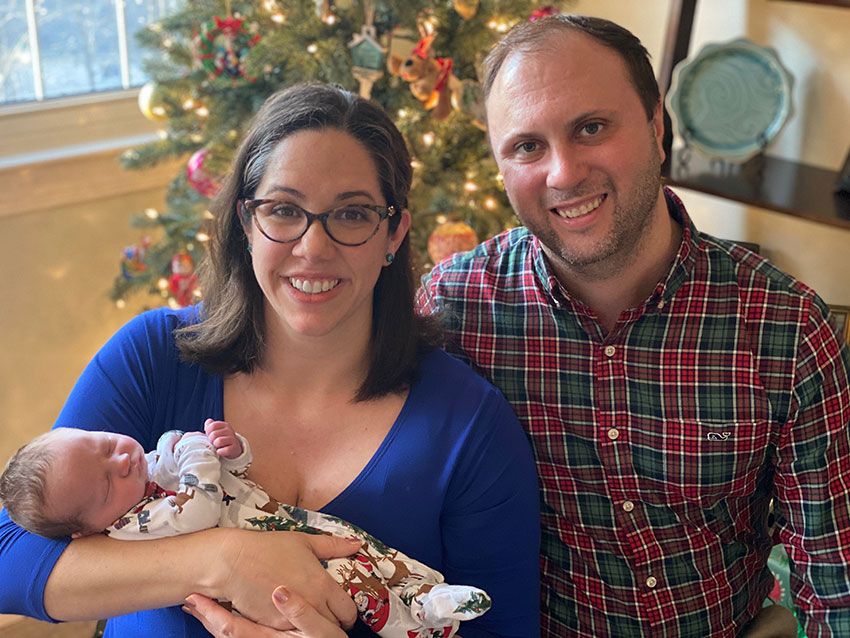
At the end of December, William Fenner Griffin, MD, radiology/diagnostic resident at the George Washington University (GW) Hospital, and his wife welcomed their first child into the world, but not long after that joyous day the COVID-19 pandemic arrived in the United States. The virus forced much of the country to a standstill, while Griffin continued reporting to his essential role at the hospital each day.
In April, Griffin had a week where he needed to be on in-house call at the hospital every night, leaving him wracked with worry that his possible exposure to the virus could put his family at risk.
“With the impact of COVID-19 on children somewhat unknown, and constantly changing, I was very fearful of exposing anyone in my family, especially my four-month-old child,” he said, adding that his living situation made it hard for him to be able to self-isolate.
Griffin, however, found the support that he needed through the GW Graduate Medical Education Office and the GW COVID-19 Response Fund, which provided him with free alternate housing.
The fund was launched in late March to support the academic and clinical mission of the GW School of Medicine and Health Sciences during the global health crisis. In addition to assisting with alternate housing costs for frontline providers like Griffin, the fund also has been used to purchase personal protective equipment, provide tents for drive-through testing sites, and enhance telehealth capacity.
“It was a huge relief to know that I could stay in alternate housing to minimize my contact with my family while I was taking in-house call at the hospital,” Griffin said.
He explained that during in-house calls, residents serve as the primary hospital contact for the radiology department. “We are responsible for reading CTs, X-rays, MRIs, and ultrasounds, and as members of patient care teams we provide information critical to patient care,” he said. He has seen imaging results from many patients infected with COVID-19, and has examined imaging findings suggestive of viral pneumonia.
“The magnitude of this pandemic has been troubling,” he added, “however, being able to see patients’ conditions improve through serial radiographs and CTs has been rewarding.”
He added that during his medical education he learned about pandemics in a historical context, but he never imagine living through one.
“It is eye opening to be a part of this playing out in real time,” he said. “The unknowns of this pandemic are unnerving and can feel overwhelming, but the strength and support I've seen from all of our care providers has been incredible.”


